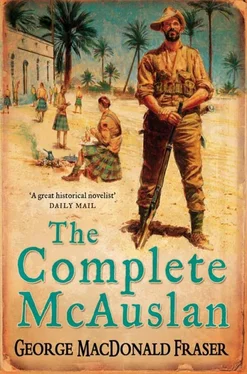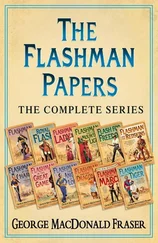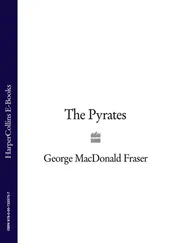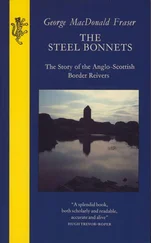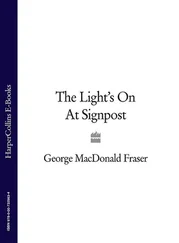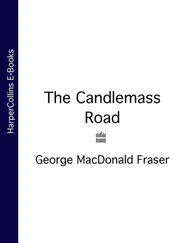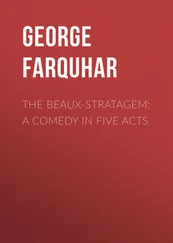This set the tone of our whole performance in the tests. Given a bell tent to erect we reduced it to a wreck of cord and canvas inside three minutes; ordered to carry from Point A to Point B an ammunition box which was too heavy for one man and which yet did not provide purchase for two, we dropped it in a ditch and upbraided each other in sulphurous terms, every word of which the examiners recorded carefully. Asked to swing across a small ravine on a rope, we betrayed symptoms of physical fear, and Hayhurst fell and hurt his ankle. Taking all in all, we showed ourselves lacking in initiative, deficient in moral fibre, prone to recrimination, and generally un-officer-like.
So it went on. We were interviewed by the psychiatrist, who asked Hayhurst whether he smoked. Hayhurst said no—he had actually given it up a few days before—and then noticed that the psychiatrist’s eyes were fixed on his right index finger, which was still stained yellow with nicotine. My own interview was, I like to think, slightly less of a triumph from the psychiatrist’s point of view. He asked me if I had an adventurous spirit, and I quickly said yes, so much so that my only regret about being in the Army was that it prevented me from signing on to sail on a Norwegian whaler.
If, at this point, he had said: “Oh, do you speak Norwegian, then?” he would have had me over a barrel. But instead he fell back on the Selection Board classic, which is: “Why do you want to be an officer?”
The honest answer, of course, is to say, like Israel Hands, “Because I want their pickles and wines and that,” and to add that you are sick of being shoved around like low-life, and want to lord it over your fellow-man for a change. But honest answer never won fair psychiatrist yet, so I assumed my thoughtful, stuffed look, and said earnestly that I simply wanted to serve the army in my most useful capacity, and I felt, honestly, sir, that I could do the job. The pay was a lot better, too, but I kept that thought to myself.
He pursed up and nodded, and then said: “I see you want to be commissioned in the—Highlanders. They’re a pretty tough bunch, you know. Think you can handle a platoon of them?”
I gave him my straight-between-the-eyes look which, coupled with my twisted smile, tells people that I’m a lobo wolf from Kelvinside and it’s my night to howl. Just for good measure I added a confident, grating laugh, and he asked with sudden concern if I was going to be sick. I quickly reassured him, but he kept eyeing me askance and presently he dismissed me. As I went out he was scribbling like crazy.
Then there were written tests, in one of which we had to record our instant reactions to various words flashed on a blackboard. With me there was not one reaction in each case, but three. The first was just a mental numbness, the second was the reaction which I imagined the examiners would regard as normal, and the third (which naturally was what I finished up writing down) was the reaction which I was sure would be regarded as abnormal to a degree. Some people are like this: they are compelled to touch naked electric wiring and throw themselves down from heights. Some perverse streak makes them seek out the wrong answers.
Thus, given the word “board”, I knew perfectly well that the safe answer would be “plank” (unless you chose to think that “board” meant “Selection Board”, in which case you would write down “justice”, “mercy”, or “wisdom”). But with the death wish in full control I had to write down “stiff”.
Similarly, reason told me to react to “cloud”, “father”, and “sex” by writing down “rain”, “W. G. Grace”, and “birds and bees”. So of course I put down “cuckoo”, “Captain Hook”, and “Grable”. To make matters worse I then scored “Grable” out in a panic and wrote “Freud”, and then changed my mind again, scoring out “Freud” and substituting “Lamour”. Heavy breathing at my elbow at this point attracted my attention, and there was one of the examiners, peeking at my paper with his eyes bugging. By this time I was falling behind in my reactions, and was in such a frenzied state that when they eventually flashed “Freud” on the board I think my response was “Father Grable”. That must have made them think.
They then showed us pictures, and we had to write a story about each one. The first picture showed a wretch with an expression of petrified horror on his face, clinging to a rope. Well, that was fairly obviously a candidate escaping from a Selection Board and discovering that his flight was being observed by a team of examiners taking copious notes. Then there was a picture of a character with a face straight out of Edgar Allan Poe, being apprehended by a policeman. (Easy: the miscreant was the former principal of a Selection Board, cashiered for drunkenness and embezzlement, and forced to beg his bread in the gutter, being arrested for vagrancy by a copper who turned out to be a failed candidate.)
But the one that put years on all the many hundreds of candidates who must have regarded it with uninspired misery was of an angelic little boy sitting staring soulfully at a violin. There are men all over the world today who will remember that picture when Rembrandt’s Night Watch is forgotten. As art it was probably execrable, and as a mental stimulant it was the original lead balloon. Just the sight of that smug, curly-headed little Bubbles filled you with a sense of gloom. One Indian candidate was so affected by it that he began to weep; Hayhurst, after much mental anguish, produced the idea that it was one of Fagin’s apprentices gloating over his first haul; my own thought was that the picture represented the infant Stradivarius coming to the conclusion that given a well-organised sweat-shop there was probably money in it.
Only Martin-Duggan dealt with the thing at length; the picture stirred something in his poetic Irish soul. The little boy, he recorded for the benefit of the examiners, was undoubtedly the son of a famous concert violinist. His daddy had been called up to the forces during the war, and the little boy was left at home, gazing sadly at the violin which his father would have no opportunity of playing until the war was over. The little boy was terribly upset about this, the thought of his father’s wonderful music being silenced; he felt sure his daddy would pine away through being deprived of his violin-playing. Let the little boy take heart, said Martin-Duggan; he needn’t worry, because if his daddy played his cards right he would get himself promoted to the post of quarter-master, and then he would be able to fiddle as much as he liked.
Martin-Duggan was terribly pleased with this effort; the poor sap didn’t seem to understand that in military circles a joke is only as funny as the rank of its author is exalted, and Martin-Duggan’s rank couldn’t have been lower.
Of course, by the time the written tests were over, the three of us were quite certain that we were done for. Our showing had probably been about as bad as it could be, we thought, and our approach to the final ordeal of the Selection Board, on the third afternoon, was casual, not to say resigned. This was a trip over the assault course—a military obstacle race in which you tear across country, climb walls, swing on ropes, crawl through tunnels, and jump off ramps. The climax is usually something pretty horrid, and in this case it consisted of a monsoon ditch four feet deep in water, at the end of which was a huge bamboo fence up which you had to climb in three-man teams, helping each other and showing initiative, intelligence, cheerfulness, and other officer-like qualities, if possible.
We were the last three over, and as we waded up the ditch, encouraging each other with military cries, the rain was lashing down something awful. There was a covered shelter overlooking the ditch, and it was crammed with examiners—all writing away as they observed the floundering candidates - as well as the top brass of the board. All the other candidates had successfully scaled the fence, and were standing dripping with mud and water, waiting to see how we came on.
Читать дальше
